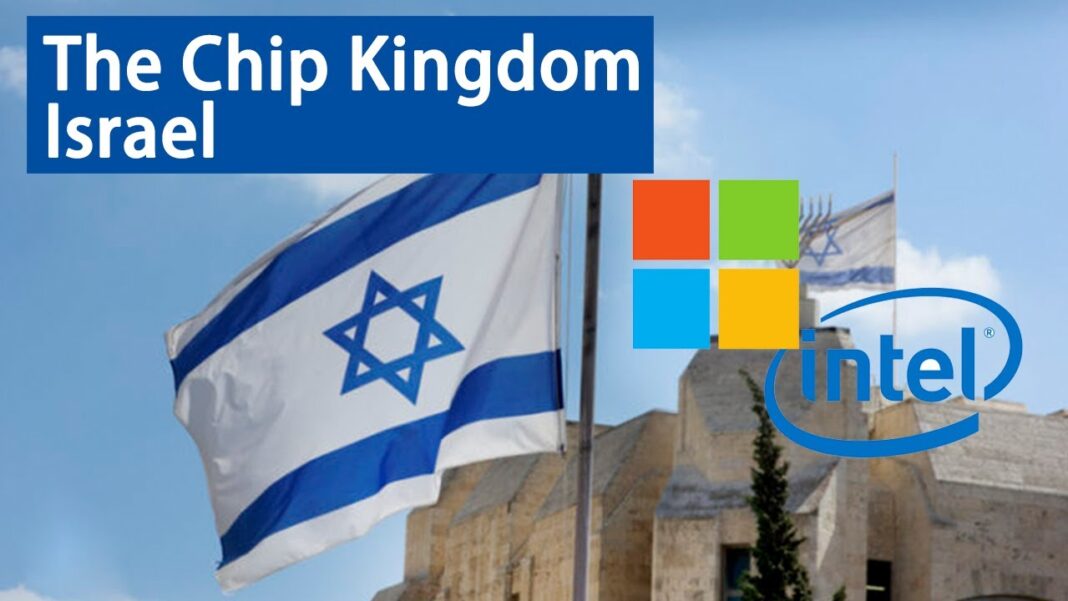|
Getting your Trinity Audio player ready...
|
Israel’s Semiconductor Industry: A Historical Overview and Current Landscape
Edited by: TJVNews.com
Israel has established itself as a significant player in the global semiconductor industry, contributing to technological advancements and innovation. The foundation of Israel’s semiconductor industry dates back to the late 1960s and early 1970s, when global technology giants such as IBM, Motorola, and Intel set up chip design centers in the country. This strategic move laid the groundwork for Israel to become a leading semiconductor hub.
A pivotal figure in this development was Dov Frohman, an Intel engineer credited with inventing the erasable programmable read-only memory (EPROM). Frohman later returned to Israel to establish Intel’s first non-U.S. design center in Haifa, marking a significant milestone in the nation’s tech industry.
Achievements and Contributions
Over the years, Israel’s semiconductor industry has achieved several milestones. Israel is home to over 300 research and development centers of multinational corporations, showcasing its global appeal. The country has made significant contributions in fields like cybersecurity, artificial intelligence, and autonomous vehicles.
A survey conducted by SEMICO for ARM in 2020 revealed that Israel ranks second after the USA in the number of semiconductor startups. More than 50% of investments in European semiconductor startups were directed toward Israeli companies, surpassing the combined investments in Germany, the United Kingdom, France, the Netherlands, and Switzerland.
The industry employs over 20,000 individuals, with annual revenues reaching approximately $5 billion. Intel, for instance, has about 9,900 employees in Israel and has invested significantly in upgrading its Kiryat Gat fabrication facility.
Current Projects and Developments
Israel continues to expand its semiconductor capabilities through various projects. Tower Semiconductor has announced a $350 million investment to enhance its production capacities, focusing on silicon photonics for autonomous vehicles and silicon germanium for wireless communication and high-performance computing. This plan includes expanding 200mm capacity in San Antonio and Migdal Haemek, Israel, and at its 300mm facility in Uozu, Japan.
In September 2024, Tower Semiconductor partnered with India’s Adani Group to invest $10 billion in a semiconductor manufacturing project in Maharashtra, India. The project aims to produce 40,000 wafers initially, contributing to the global semiconductor supply chain.
Intel has a longstanding presence in Israel, operating multiple development and production sites, including its manufacturing plant in Kiryat Gat. However, reports in June 2024 indicated that Intel is halting plans for a $25 billion factory expansion in Israel, citing the need to adapt large-scale projects to changing timelines based on business conditions and market dynamics.
Strategic Importance
Israel’s semiconductor industry holds a crucial position in the global supply chain. The country serves as a center for global semiconductor R&D, occupying an important position in the industry chain. This status is attributed to a combination of vision, innovation, and strategic government support.
Israel’s expertise in semiconductors has led to collaborations with countries such as India, aiming to establish a robust semiconductor ecosystem. These partnerships are part of broader strategies to attract global manufacturing businesses and position partner countries as leading chip producers.
Challenges and Future Outlook
Currently, U.S. companies lead the semiconductor industry, even though most advanced chips are manufactured overseas. Taiwan ranks second, thanks to TSMC’s valuation of $1 trillion.
Despite its successes, Israel’s semiconductor industry faces challenges. Regional conflicts pose risks to the stability of the semiconductor supply chain, potentially impacting production and investment.
Decisions by major corporations, such as Intel’s halted expansion plans, reflect the industry’s sensitivity to global market dynamics and the need for adaptable strategies.
Nevertheless, Israel’s commitment to innovation and its strategic investments in emerging technologies position it well for continued influence in the global semiconductor arena.
Currently, U.S. companies lead the semiconductor industry, even though most advanced chips are manufactured overseas. Taiwan ranks second, thanks to TSMC’s valuation of $1 trillion.





